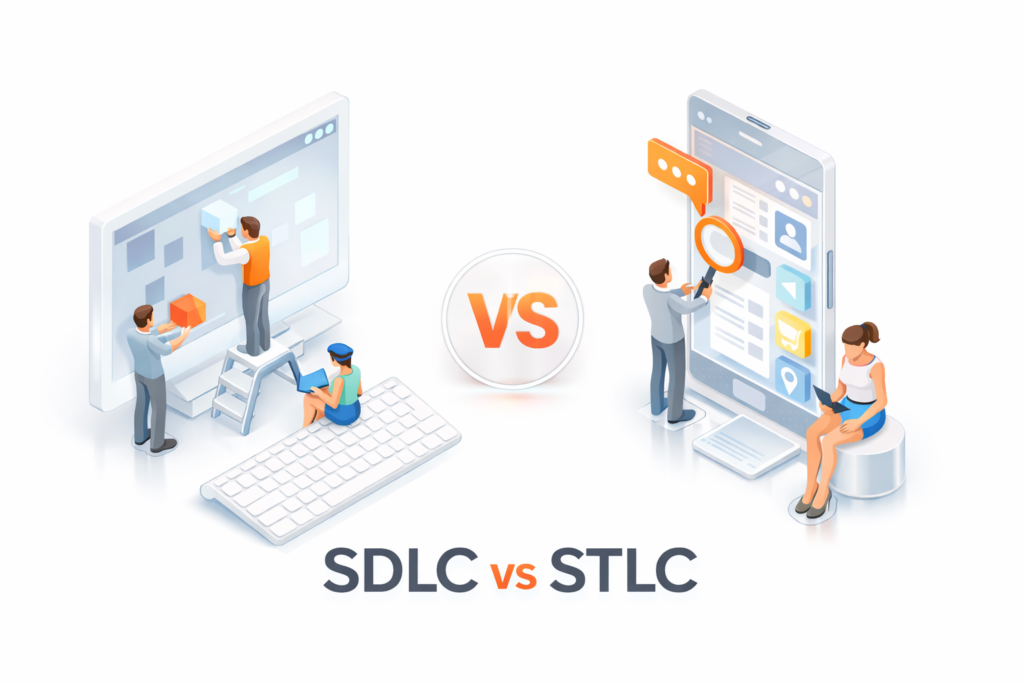With each passing day, websites are now becoming more versatile and offering features that weren’t possible before. People want to access web content through various different platforms, and they continue to demand additional functionality from websites.
However, with additional features, web developers face massive hurdles in accommodating these changes. With more than 1.94 billion active websites online, no person will use your website if doesn’t provide its advertised features. Therefore, web developers have to deliver these features in line with user expectations, as well.
Furthermore, since a website is the face of a client’s business, any small mistake can hurt their business significantly. In fact, according to an estimate, software errors after deployment cost the US economy as much as $1.7 trillion annually.
One of the best ways to eliminate these errors is to establish a comprehensive system for identifying them before they hurt your website. Testing the features of your website, before its launch, can increase the confidence of your users in your brand. In this article, we discuss the primary reasons why testing is an essential step that influences the success of your website.
What is Website Testing?
Website testing is a testing process meant to identify errors in a website, web micro-service or any other web-based application. During this phase, website testers evaluate different components of the website and examine each feature, both individually and collectively.
The testing procedure is extremely thorough, and QA web testers check the entire web system end-to-end before releasing the website for use. As a result, they are able to evaluate how well the website fulfills its purpose.
Why you Need Website Testing or 6 Reasons Why Website Testing Is Important
Website software testing removes the hurdles that can affect your website ranking, boosts its interactivity through optimal design and makes it easier to backlink. While designing your website to increase brand awareness, generate leads, drive sales is essential, make sure that all the website features work optimally.
Minimizes Website Errors
An error-free website seems like an obvious requirement, but many web development companies fail to deliver this need. Oftentimes, business owners find that the website design has various hidden issues after they start using it.
Web developers already have a lot on their plates, so it can be difficult for them to evaluate every feature. As a result, they may fail to identify significant problems in the website design that only surface after the client starts using it. Your website can be vulnerable to these issues and even crash, in worst cases, which is why it’s vital to address these issues.
Makes A Website Look Professional
Small errors, such as long loading times, broken links, typos, grammar mistakes, non-functional buttons, and forms that don’t submit, are common issues that are not tested thoroughly. Even if a company gets rid of errors from the core features of the website, these seemingly minor issues can spoil user experience for website visitors.
While a small typo on a website might not seem that much of a problem to some people, it will give your website an unprofessional look. Naturally, if people notice minor mistakes, they will doubt the authenticity of the website, and most likely never return to use it again.
By removing these small errors, you can make your website look more authentic to visitors. As a result, it will be easier for you to establish trust with them, and you will be able to garner attention towards your CTAs.
Ensures Website’s Compatibility With Different Devices
With so many types of devices available on the market and different software to support them, it has become increasingly difficult to build websites that are compatible with all devices and platforms. A website needs to be responsive to the screen size of a device and readjust its design when it opens on a different device. Effective mobile compatibility testing helps ensure that your website functions well across various mobile devices and platforms.
Even if you don’t consider these devices and the operating systems that support them, it needs to be compatible with numerous web browsers available on the market. Developers of these web browsers continue to update browsers and use updated rendering engines to display web pages.
If you don’t test your website design thoroughly, a single web page can appear differently in two web browsers. This severely affects user experience and can make your website unbearable for visitors.
Nevertheless, testing your website on all major web browsers can help you to pick up such problems before it goes online. This means you can test whether or not the website is mobile responsive and ensure that it performs optimally on all browsers.
Removes The Need to Continuously Redesign Website
Many business owners change their website design from time to time. Despite the substantial overhead costs of redesigning each element of the website from scratch, they continue with this practice to optimize their website performance.
In most cases, a website is redesigned to freshen up its look and layout or due to errors. When a website is tested thoroughly, it can cause errors and adversely affect the website’s performance.
Improves Website Design
When you are designing the structure of your website, it’s important to consider the restrictions that end users may face in terms of bandwidth. Without this, you cannot make efficient design and users would not be able to use the website properly.
You should remember that your website performance doesn’t get affected just because of which hosting company you use. An improper or outdated web design causes the website to perform poorly. Elements such as your graphical design, code design and placement can slow your website down and prolong loading times.
Websites with an inefficient code take a longer time to load, lag in slow internet connections, and can even freeze on the screen, in worst cases. Furthermore, Google can even penalize slow websites, which leads to a decline in its rankings in search results.
Moreover, if you develop an efficient design for your website, it will use the available bandwidth more efficiently.
Boosts Website Security
In today’s online world, your website is not safe unless you implement the necessary security features for it. Hackers use a variety of advanced techniques to bypass security measures of websites and spread viruses.
Once a website has been infected with viruses, it can lead to a host of issues for the business. Although such cases are extremely rare, they can happen if the website has been designed carelessly. Even if cybercriminals don’t infect the website with viruses, they can still harm the business via other forms of cyber threats, such as SQL injections, DDoS, and cross-site scripting attacks. The main reason why a website can fall prey to hacks is because of the negligence of the website administrator or issues in web design.
However, if you test your website, you can identify design hazards early on. As a result, it becomes easier to plug in security issues and protect your website from cyber threats.
Types of Website Testing
Since websites are designed to offer multiple functions, they need to fulfill various requirements. This entails considering countless factors when creating the website. This is why, you need various forms of testing to ensure that every aspect of the system is working perfectly. Here is a list of different website testing types.
Security Testing
The security of a website is perhaps the greatest concern for most online users. People use a website for various different reasons, which can range from making financial transactions, buying and selling, and much more.
This is why a website should have specialized access controls for admins that can restrict access to external people. Without security testing, it is impossible to identify the underlying vulnerabilities of your website and make sure that it doesn’t leak sensitive information to attackers.
Database Testing
Databases are critical to website operation. For this reason, you need to test the database to make sure your website is functionally sound. The process involves testing different kinds of errors during query execution.
During testing, the data should be protected from any kind of modification, and regular query execution should not affect data integrity. Furthermore, web testers need to check if the response time of all the queries is optimal and if the data displayed by the application is shown accurately by the web application.
Performance Testing
Nowadays, customers are extremely sensitive to small glitches and may leave your site if they experience delays. This makes it crucial to evaluate your website’s performance using various performance metrics. A reliable website load testing tool can help you achieve this.
These performance metrics include database performance, load tolerance, website loading speed, throughput, efficiency, uptime, and data transfer rate. With the help of performance testing, you can determine how well your website can perform regular use over a long period of time (load testing), and how it can cope against additional load from users during peak times.
Functional Testing
Every website needs to perform a variety of different functions. However, it’s essential to test the core functions of these websites individually to prevent any glitches after deployment. These core functions are mandatory for your website as it cannot function without them.
Compatibility Testing
Compatibility testing is meant for checking a website’s compatibility against different devices, apps, and operating systems. It helps evaluate whether or not a website is responsive and if it can operate smoothly on different platforms and browsers.
Furthermore, if your website has an option for printing pages, compatibility testing can help you identify whether it can support font, alignment and page graphics for printing devices.
Usability Testing
Usability testing tests whether a website can offer an optimal user experience to a typical user. Therefore, usability testing addresses a variety of questions related to a user’s experience, including page navigation, website design, how easy to use the website features are and whether or not the content on the website is clear.
Checklist of Website Testing
Website testing is a process that requires considerable time and attention. This is why, you must follow a series of important steps to carry out the process effectively.
Functional Testing
The features of your website can be render-able if they follow the correct form of HTML, CSSS and other design elements. Therefore, it’s important to verify both CSS and HTML standards during functional testing.
At the same time, you should check design features, such as dropdowns, internal links, checkboxes, text boxes, radio buttons, and forms. Without these foundational design feature options, your website cannot operate. In addition to these features, the functional testing routine should check the following elements of your website:
Performance Testing
You need to identify all performance bugs, such as the scope for optimization, runtime bloat, problems related to latency, speed, and throughput or any other metric related to the overall performance of the website.Besides that, you must test issues that might crop up under anticipated users, such as system capacity issues, bandwidth issues, load balancing problems, poor response time.
Compatibility Testing
To check if your website is compatible with different devices, operating systems, applications, etc., you need to open and use the website on different browsers, operating systems and screen resolutions. Furthermore, you also need to see the hardware and network requirements for a system to render the website successfully.
Security Testing
To perform security testing effectively, test the website against simulated attacks for password cracking and see if it can address any threats. Check if it can prevent common cyber attacks, such as DDoS, SQL injection, cross-site scripting.
Usability Testing
Usability testing is necessary to ensure that the website offers an optimal user experience. Therefore, you should check that navigating website pages is easy and if the website is loading in a reasonable amount of time.
Furthermore, make sure that the appearance of the website is attractive, consistent and clean, so it is easily readable by website visitors. In case any error occurs, the website should display an error message.
Website Testing Solution via PFLB
Small problems in your website structure and design can cause significant issues when it comes to web applications. Issues such as downtime, delayed response time, and poor usability can be fatal to a website and incur significant losses to a business.
PFLB is one of the best website load testing tools and among the pioneers in software testing services. Since its inception, the company has been providing software-testing services to over 500 companies spanning to all domains, from finance and healthcare to retail and technology.
The company provides its clients with all core ecommerce web testing services, ranging from reliable performance testing services, Usability Testing, Database Testing, Integration Testing, Test Automation, and much more.
To summarize, Website Testing is essential for detecting the core issues of your website. You need to test all the components of your website to ensure that they are working seamlessly, and end-users do not face any hindrance when using your website.
It’s difficult to find a reliable web testing service provider that has enough experience to bring value to your project and take care of the entire ecommerce testing process on its own. PFLB specializes in providing quality assurance services for all kinds of web applications across all major industries. They have years of testing experience, backed by expertise in working with dozens of products. For comprehensive website software testing services, contact PFLB now.



